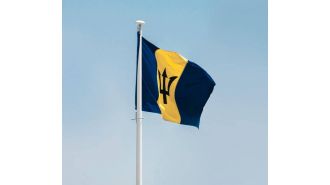I visited a Crimestoppers HQ where people spoke in hushed tones and there was a bowl of Haribo sweets.
Agents search for the crucial info needed to solve an investigation, from a hidden loc.

I was standing at the ticket barrier at a station in the south of England with only the name of who I was meeting. I didn’t know what they looked like or even where they were taking me. The secrecy of the meeting was due to the fact that I had been granted exclusive access to Crimestoppers HQ. As I shuffled through the barriers, I recognized my contact through our mutually expectant expressions.
We eventually arrived at a nondescript building, and after several corridors, were granted access to the charity’s UK Contact Centre. Here, I encountered an army of call agents who heard first-hand about Britain’s criminal underworld. Appeal posters were scattered across the headquarters, a reminder of their work, which had successfully secured convictions for a series of high-profile cases, such as the murder of Julia James.
These agents listened to stories of gun possession, planned attacks, and child abuse. They also received calls from criminals who were terrified of giving the same information to the police. Information was often ‘spat out’ before the call abruptly ended. It was important for the safety of the call handlers to keep the location of Crimestoppers headquarters a top secret.
Inside the walls of the charity, I met Diane, a call agent who sat beneath a pastel-coloured cloud that acted as a sound absorber. She typed away on her dayglo-lit keyboard, finishing reports, and her bright pink nails and hair matched her enthusiasm for the job. BBC News played on a nearby TV, and packets of Haribo Starmix were laid out on tables for those on the 5am shift.
Diane explained that they search for the ‘golden nugget’ of information that could solve a rape, murder or child abuse investigation. Anonymity is key, as the charity isn’t the police and doesn’t care who you are or how you know what you know. They just want the information. In some cases, people will blurt out what they want to say and then hang up.
Crimestoppers was founded by Michael Ashcroft, now Lord Ashcroft, following the death of PC Keith Blakelock during the 1985 London riots. Since then, 140,000 arrests have been made as a result of the charity and financial incentives have been offered to help boost appeals. However, on average each year, only 1%-7% of financial rewards are actually claimed as people want to do the right thing.
I find myself standing at a ticket barrier in a station in the south of England, feeling a little apprehensive about the task at hand. I'm here to meet someone and I only have a name. I'm not sure what they look like or where they are taking me.
Little do I know that I'm about to be granted exclusive access to Crimestoppers HQ, an organisation that has been fighting crime for 34 years now. As I look around, I spot my contact and we exchange knowing glances.
We make our way towards the charity's base, which is located in a nondescript building. It's a place that I'm not allowed to talk about. Once inside, we are guided to the UK Contact Centre. This is where a small army of call agents works tirelessly to search for the 'golden nugget' of information that could help solve rape, murder and child abuse investigations.
The walls of the centre are lined with appeal posters, a reminder of the important work done here. Crimestoppers has helped to secure convictions in a number of high-profile cases such as the murder of Julia James. The agents at the centre receive calls from both concerned members of the public and from criminals who are scared of giving information to the police.
The safety of the call handlers is of utmost importance, considering the sensitive nature of the cases they are working with. This is why the location of the Crimestoppers headquarters is such a closely guarded secret.
We meet Diane, a call handler with a bright pink hair and nails. She works within the charity's contact centre, a job she absolutely loves. The atmosphere here is one of community and purpose. There's also the occasional packet of Haribo Starmix to keep energy levels high on the 5am shift.
Diane tells us that they look for the 'golden nugget' of information after police appeals. It could be about anything from child abuse to bomb threats. The calls come from all sorts of places, including Northern Ireland where there have been cases of threats to blow up a house.
The numbers of the callers are scrambled and the conversations are not recorded, only noted down. The anonymity of the caller is paramount. Crimestoppers staff are not the police, they just want the information.
The charity was founded by Lord Ashcroft following the death of PC Keith Blakelock in 1985. Since then, 140,000 arrests have been made as a result of Crimestoppers UK. In some cases, financial incentives are also provided to encourage people to come forward.
It's clear that the driving force behind these calls is not always money but the caller's own moral compass. Most of the time, only 1-7% of the financial rewards are actually claimed. People just want to do the right thing.
Crimestoppers agents work in the shadows, but their work is incredibly important. They are the ones who have helped to secure convictions in high-profile cases such as the murders of Joanna Yates, PCSO Julia James and school-girl Thusha Kamaleswaran.
I'm glad I was able to experience the inner workings of this incredible organisation and witness first-hand the dedication of its staff. Their work is making a real difference in the fight against crime.










